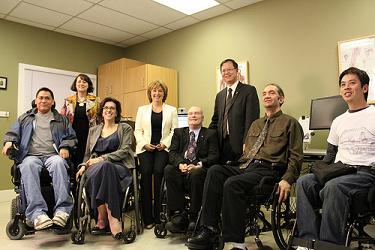Got change? Want change? Spare some and get some by becoming a member of rabble.ca today.
On June 11, the B.C. government surprised many when it announced a host of welfare policy changes. In all, almost 30 welfare rule adjustments are to be enacted (the full list can be found here).
After more than a year as premier, the announcement was billed as “the first pillar of [Premier Clark’s] Families First Agenda.” The changes themselves were described as “common sense” reforms (begging the question of why the government stubbornly refused to make these changes for 10 years).
Overall (but with some important exceptions), these changes are good news and long overdue. That said, many of the changes are marginal; most will impact very few people, and the government itself estimates the overall cost of the full suite of changes at approximately $5 million — a rounding error in provincial budget terms.
First, the good news: Anti-poverty activists, after years of advocacy, have scored some important wins (some changes that will cost the government very little, but will make a material difference to many on social assistance):
– B.C. will be restoring earnings exemptions for all welfare recipients. Earnings exemptions are the rules that allow people on social assistance to earn a little money and keep it (on top of one’s meagre welfare benefits). For the last 10 years, if you did not have a recognized disability or barrier to employment, B.C. offered no earnings exemption — every dollar earned was clawed back off your welfare cheque. As of yesterday, people on social assistance in the “expected to work” category will be able to earn and keep $200 per month. The CCPA (along with many others) has advocated for the restoration of earnings exemptions ever since the government eliminated them in 2002. Given that welfare benefit levels are completely inadequate, this top-up is vital. But earnings exemptions are also a valuable path back into the paid workforce, which is why it was always so incomprehensible that the government has been so stubborn for so long.
– Earnings exemptions for people with disabilities (those in the PWD category of social assistance) will now rise from $500 to $800 per month.
– Moreover, PWD folks will now be able to calculate and claim their earnings exemptions on an annualized basis, rather than on a monthly basis. This is great, and if I may be permitted to boast, something the CCPA first proposed to the B.C. government in a 2008 report entitled Removing Barriers to Work: Flexible Employment Options for People with Disabilities in BC, available here. For some with a disability (particularly people who wrestle with mental illnesses), their ability to work is intermittent — some months you feel good and can work quite a bit, and other months are a wipe out. This new rule means that, if you have a hard month and can’t work, you can bank unused earnings exemption room and claim it in months when you feel better. Good move.
But here’s the rub. Most people on PWD don’t use earnings exemptions. As we found in our 2008 report, fewer than one in five PWD folks claim any earnings exemptions, and only a small fraction of those use the full earnings exemption (meaning, the previous allowance of $500/month). That stands to reason — most people classified as PWD aren’t in a position to work.
What the government conspicuously and consciously did not do yesterday was actually raise welfare benefit rates, which, as I wrote here, are abysmally low and unliveable. A majority of welfare recipients in B.C. are on PWD, and a large majority of them don’t use earnings exemptions. They gained nothing from yesterday’s announcement.
There were some other positive (albeit small) adjustments yesterday.
And notably, buried at the very end of the government’s Backgrounder, was another long-overdue “win” — the government is scrapping the welfare time limits rule. As some will recall, in 2002 the government introduced a very controversial rule limiting welfare to two out of five years. This rule galvanized opposition across the province, and the CCPA played a leading role in pointing out the profound social harm that would result from this policy. As the two-year mark approached, however, in February 2004, the government backed down, and instituted a 25th exemption to the rule that effectively made it moot. Anti-poverty activists and their allies, for all practical purposes, won. But the government stubbornly refused to remove the rule itself from the books — that is until yesterday. Victory at last.
But it’s never all good news. The government announced one particularly punitive rule change yesterday — the “three week wait” that welfare applicants have been forced to endure since 2002 is being extended to five weeks. This penny-pinching move will cause increased hardship for many. The government officially refers to this period as the “work search” requirement. But the rule is fundamentally inappropriate given the reality of who presents at the doors of the welfare system. Welfare is already understood as an income of last resort. People present having already exhausted all other options and resources. To make people wait longer is to risk evictions and forces people into compromising and dangerous circumstances (as we noted in our 2006 report Denied Assistance). This rule clearly fails the common-sense test: most people on social assistance have a recognized disability or barrier to employment, yet this policy paradoxically presumes employability. It too merits abandonment.
Overall though, some welcome changes. A rare day. But if the government thinks it can make a significant dent in poverty reduction without spending money, it is mistaken.
This article was first posted on Policy Note.



